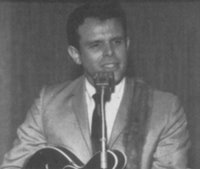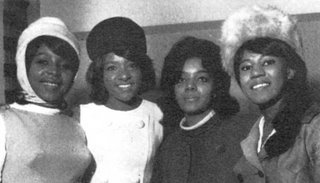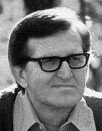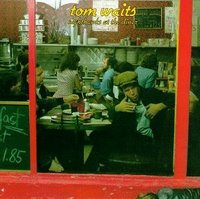 The way I remembered it, the first Beatles songs I ever heard - before I’d even heard of The Beatles - were Do You Want To Know A Secret by Billy J. Kramer & The Dakotas and From Me To You by Del Shannon. Both songs were on Australian radio around June 1963.
The way I remembered it, the first Beatles songs I ever heard - before I’d even heard of The Beatles - were Do You Want To Know A Secret by Billy J. Kramer & The Dakotas and From Me To You by Del Shannon. Both songs were on Australian radio around June 1963.I first heard Billy J. Kramer's Do You Want To Know A Secret in the middle of the night, around 3.00 am, when I'd got up to fix a snack and had pulled in some distant Top 40 station on the kitchen radio, turned down low so I wouldn't wake up the folks. The station might've been 2SM, from Sydney, one of those stations that used to come in only after dusk
 .
.I liked it in the same way I liked other melodic pop songs of the early 60s: George Hamilton's Abilene, The Everlys' So Sad, or Joe Brown's That's What Love Will Do.
I had no idea that Do You Want To Know A Secret originated with an approaching cultural hurricane, The Beatles.
I’ve always had this picture of myself, alone in the late-night kitchen and hearing - through the static and fade-outs of a distant station - a first breeze, a faint stirring of something greater, still unimagined.
This was a few months before the summer vacation of '63-'64, when Beatlemania would hit us properly, when I Want To Hold Your Hand and I Saw Her Standing There would be all over the radio. The Beatles wouldn’t really enter my consciousness until the Australian Spring of 1963.
Back in the winter, when I’d heard Del Shannon's version of From Me To You on 3DB, the announcer - Barry Ferber - had made it sound as if this was just another Del Shannon gem, and he’d added, "There's also a version of that out by Britain's Beagles."

Beagles? As in Donald Duck comics, the Beagle Boys? Ferber probably did say Beatles and I misheard him, but it gave me a picture of some eccentric English band who wore black eye masks and shirts with prison numbers.
Thing is, it didn't matter, because this was a Del Shannon record and, Beagles or Beatles or whatever, who would care if they covered one of Del's records?

Beagles? As in Donald Duck comics, the Beagle Boys? Ferber probably did say Beatles and I misheard him, but it gave me a picture of some eccentric English band who wore black eye masks and shirts with prison numbers.
Thing is, it didn't matter, because this was a Del Shannon record and, Beagles or Beatles or whatever, who would care if they covered one of Del's records?
Before the British Invasion, Del Shannon was already one of the greats, always on the radio , always coming up with pure, enjoyable pop, song after song: Hats Off To Larry, Two Kinds Of Teardrops, Swiss Maid.... and has Runaway ever not been on the radio since 1961?
, always coming up with pure, enjoyable pop, song after song: Hats Off To Larry, Two Kinds Of Teardrops, Swiss Maid.... and has Runaway ever not been on the radio since 1961?
 , always coming up with pure, enjoyable pop, song after song: Hats Off To Larry, Two Kinds Of Teardrops, Swiss Maid.... and has Runaway ever not been on the radio since 1961?
, always coming up with pure, enjoyable pop, song after song: Hats Off To Larry, Two Kinds Of Teardrops, Swiss Maid.... and has Runaway ever not been on the radio since 1961?
We used to sing Here she comes (here she comes) from Little Town Flirt when we saw our English teacher, Miss Phillips, coming down the walkway. Even into 1964, the Year of Beatlemania, Del's churning versions of oldies like Handy Man and Do You Want To Dance added new life to them, updated them for the moment.
So I also liked to think that Del Shannon, with his cover of From Me To You, was a messenger who reached me with distant news of what was to come.
The other day, though, when I checked the Melbourne charts for 1963, I realised that my idea about Del’s cover version overshadowing the original was a mistake.
In fact, The Beatles’ From Me To You must have been the better-known version in Melbourne, entering the charts in May and eventually peaking at #4. There is no trace of Del Shannon’s version in the Melbourne charts. (It did chart in Sydney and Adelaide in June, alongside The Beatles. Billy J. Kramer charted in Brisbane and Adelaide, also in June.)
What’s more, The Beatles’ Please Please Me had already charted in Melbourne the previous month. It only got to #29, so maybe I wasn’t the only one it failed to make a huge impression on.
And I guess your memories of music are of what made an impression on you, of what you noticed at the time, and that might not be reliable music history. I must have heard the Beatles around April or May ’63, and some kids around me were actually going out and buying their singles, but until about September I wasn’t taking any notice.
It does turn out that Del Shannon's From Me To You was the first US cover of a Beatles song, and the first Beatles composition to chart in the US (it got into the 90s, a bit higher than the Beatles' own initial release), and he'd heard it while touring Britain with The Beatles. So he must’ve been the Beatles' advance scout for a number of Americans.
As for the supposed Beagles: there were at least three US singles by bands called The Beagles in the mid-60s, and at least two of them were Beatles-related. One was a 1964 cover of Can't Buy Me Love on the Hit label, the other was I Wanna Capture You, a 1966 Columbia single from an animated dog cartoon, a cash-in on the British Invasion.








